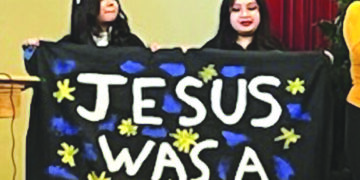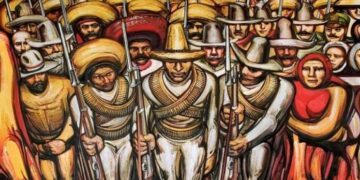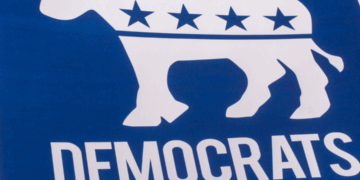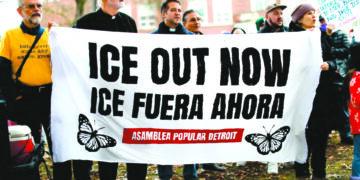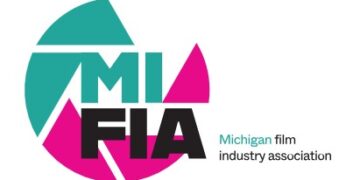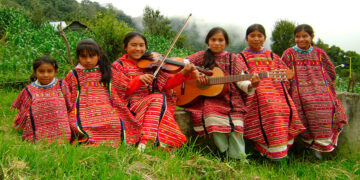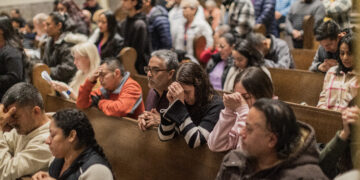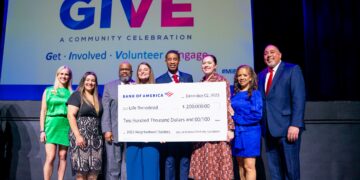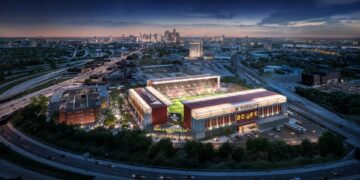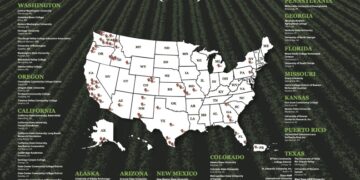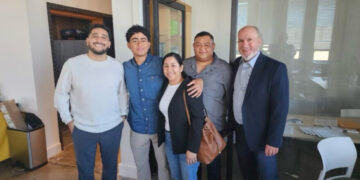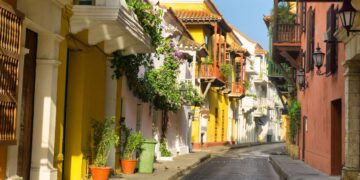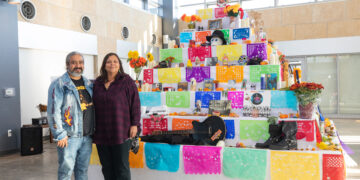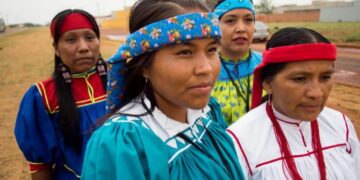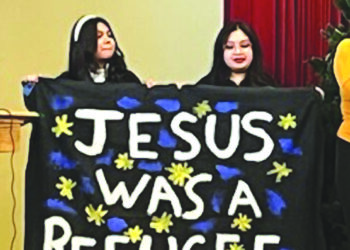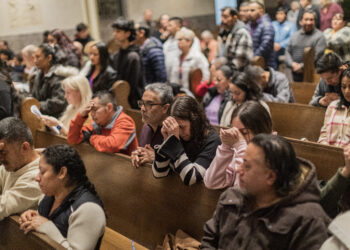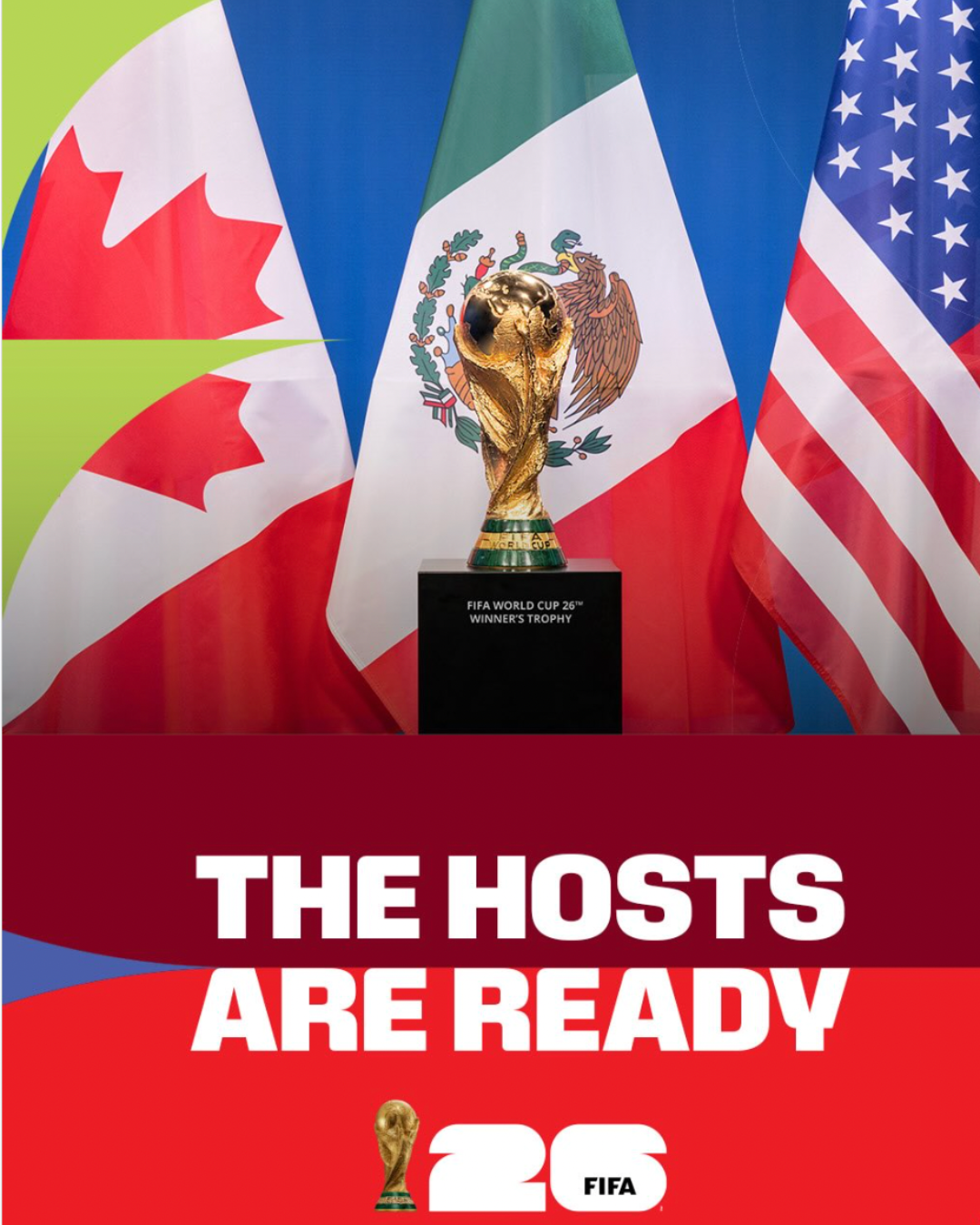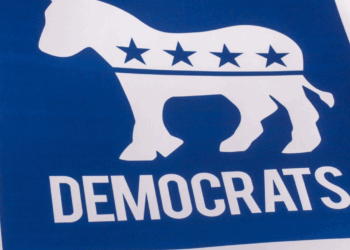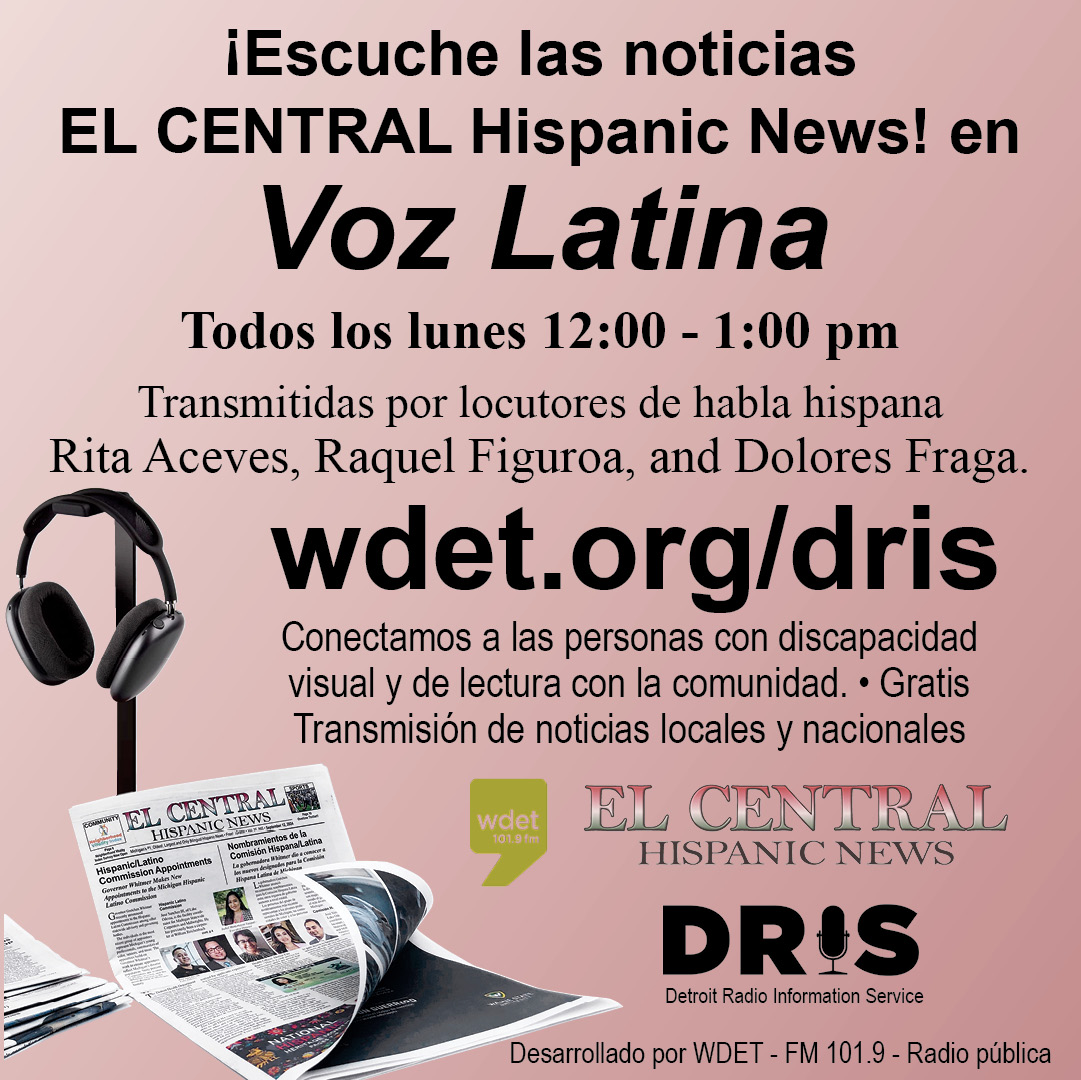A call on social media urging “Latinos, Mexicanos, we need your presencia today!” drew a large crowd to the Mexicantown Mercado on a crisp fall evening in Southwest Detroit. Residents gathered on Thursday night to ensure their voices were heard at the Neighborhood Advisory Council meeting regarding the proposed Detroit City Football Club stadium, a $198 million mixed-use development that includes a parking deck, affordable housing, and retail space.
This was the seventh of nine scheduled public meetings, a key moment in which developers formally presented their responses to community requests. Hosted by the City’s Planning and Development Department and the Neighborhood Advisory Council (NAC), the meeting marked a turning point in the months-long discussion over how the stadium’s promises will translate into benefits for those living nearby.
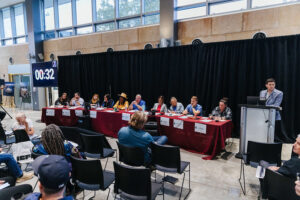
By 7:40 pm, the energy in the room had shifted. Neighbors lined up to offer public comments and requested that any agreement reflect real, measurable benefits for Southwest Detroit, particularly within the impact zone.
Among them was Elena Herrada, a lifelong Detroiter whose family had been in the city since 1920. As a community advocate, she urged the City to reinvest in community institutions, such as the Bowen Branch Library, rather than continue diverting resources through tax captures and abatements.
“I think it was really important for the raza to show up tonight because we will be ignored and erased in this process,” Herrada said. “Our people are getting pulled out of cars in the morning on their way to work. If we don’t stand up, we will be gone, and no one will miss us. I’m proud that so many people from our community showed up to say we matter here and that what happens with this money has to include us.”
During the public comment period, several community members linked the stadium proposal to broader questions of cultural investment and neighborhood well-being. Some spoke about the connection between sports and culture, urging developers to see both as essential to the identity and economy of Southwest Detroit.
“The investment in arts and cultures goes hand in hand with the investment in sports, both are powerful engines for economic development, community pride, and youth opportunity,” said Southwest Detroit Resident and community leader, Bianca Cuevas.
Others called attention to the human toll of gentrification, emphasizing that discussions often center on traffic or infrastructure, when the deeper issue is how displacement affects families and young people. Cindy Gamboa, Executive Director of Mi Poder Michigan and VP of MANA de Metro Detroit, said our youth are striving, but the support isn’t there, so I really want to urge you guys to continue to make sure that in this process, there are concrete commitments to the people that live here.
Speakers urged the City and developers to prioritize scholarships, housing stability, and funding for local institutions that have long supported residents.
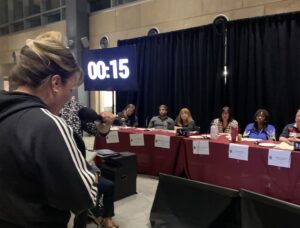
A proposed $1-per-ticket housing repair fund drew strong support from residents, who called it a simple yet powerful way for the stadium to give back to the neighborhoods most affected by its development. The idea became a rallying point for some, representing what many saw as a fair and innovative model for community benefits.
Developers responded, saying DCFC games are already among the most affordable sporting events in Detroit, and adding an additional dollar to ticket prices would undercut that value.
For many residents, though, that explanation fell flat… They saw the $1 contribution not as a burden on fans, but as a shared investment in keeping longtime neighbors in their homes.
“We need a mechanism to keep longtime neighbors in their homes. They haven’t broken ground yet, and that gives us leverage. This stadium will bring noise, traffic, and parking impacts, and it’s only fair the club helps sustain the community. This could be a historic opportunity to forge the most meaningful Community Benefits Agreement in Detroit’s history,” said Bill Cheek, a North Corktown resident.
Cheek also cautioned against repeating past patterns of unfulfilled promises. “Ford made that pitch in 2018. What we got instead was Michigan Central transforming themselves into a nonprofit and competing for community dollars. That behavior is unacceptable and not neighborly.”
Developers emphasized that they are listening. Sean Mann, DCFC co-founder and CEO, described the process as “fully engaged.”
“Tonight a broader Southwest voice came out,” Mann said. “We’ve added language ensuring benefits extend beyond the impact zone. We live here, our kids go to school here, and we want to create something the neighborhood embraces.”
The NAC will reconvene on Thursday, October 16 at 6pm at the Mexicantown Mercado to review revisions and potentially vote on the final Community Benefits Agreement. Residents can follow updates and access materials at www.detroitmi.gov/DCFC.
******
Angela Gallegos is a special projects manager, voice actress and native Southwest Detroiter. She is a creative changemaker passionate about wellness and justice in her community and the world.
This article and photos were made possible thanks to a generous grant to EL CENTRAL Hispanic News by Press Forward, the national movement to strengthen communities by reinvigorating local news. Learn more at www.pressforward.news.

